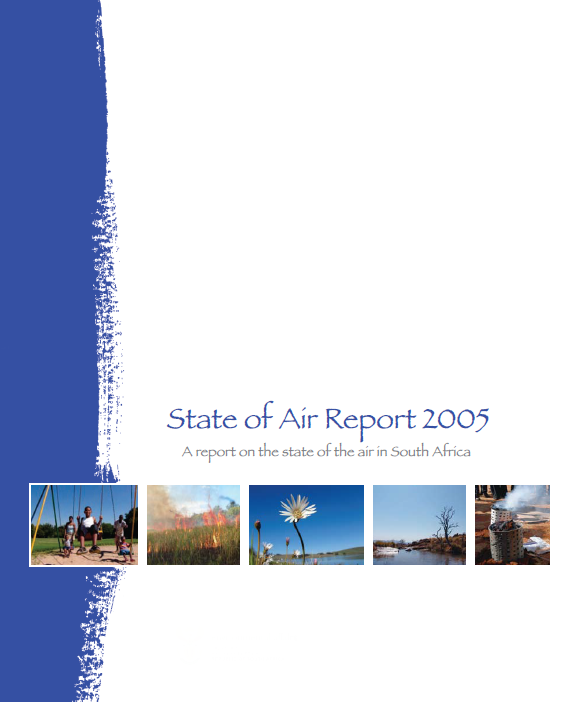NORMS AND STANDARDS FOR PROMOTING SOUND ENVIRONMENTAL MANAGEMENT PRACTICES
One of the strategic objectives of South Africa's climate change response policy is informed decision-making and planning, where the country set out to prioritise research, systemic observation, knowledge generation, information management and early warning systems that increase our ability to measure and predict climate change and the implications of its adverse effects on the economy, society and the environment.
SA'S ANNUAL CLIMATE CHANGE REPORTS (ACCR)
THE SOUTH AFRICAN NATIONAL CLIMATE CHANGE RESPONSE POLICY (NCCRP): AN EVIDENCE-BASED POLICY-MAKING CASE STUDY
Peter Lukey | 2020 [PDF - 774,84 kb]
Although parts of the policy development process, especially the long-term mitigation scenarios (LTMS) process, have been documented, there is no published description of the NCCRP development process as a whole. This paper attempts to document the entire process and analyse it as an example of evidence-based policy-making.
INTRODUCTION
South Africa's NCCRP commits the department in section 12 to publish annual progress reports on monitoring climate change responses. These documents represent the primary output of the climate change M&E framework. The report details a suite of climate change related indicators that are tracked overtime to inform South Africa's domestic audience about climate related observations, the risks and vulnerabilities to climate change as well as climate responses relating to adaptation, mitigation and finance.
FOURTH ACCR: 2021
PUBLISHED IN SOUTH AFRICA - OCTOBER 2021 [PDF - 5.44 mb]
The fourth (4th) ACCR is the first report in which indicators are presented, reported and reflected upon, a step forward for the South African climate change monitoring and evaluation system. The aim is for future national climate change reports to iterate this effort with a substantiated and reviewed set of indicators.
THIRD ACCR: 2017
PUBLISHED IN SOUTH AFRICA - NOVEMBER 2018 [PDF - 3.21 mb]
The third (3rd) ACCR reflects on the progress made in the implementation of this climate action profiling ongoing efforts to respond to climate change and quantifying the impacts of these actions, as a basis for triggering more ambitious climate action and chronicles key advances in the tracking of South Africa’s transition towards a climate resilient society and a low carbon economy.
SECOND ACCR: 2016
PUBLISHED IN SOUTH AFRICA - NOVEMBER 2017 [PDF - 10.5 mb]
The first (1st) ACCR, published in 2016 (DEA 2016), provided a comprehensive overview of South Africa's progress in catalysing action in response to climate change impacts and risks. The second (2nd) CCAR continues this tradition of documenting and building an evidence base to inform future responses to climate change.
FIRST ACCR: 2015
PUBLISHED IN SOUTH AFRICA - AUGUST 2016 [PDF - 1.85 to 4.93 mb]
Annual CCR progress reports represent the primary output of climate change monitoring and evaluation (M&E) framework and the 2015 report is the first of these progress reports. It focuses on providing a narrative of the information that the department has collated over the past few years.
theme A | theme B | theme C | theme D | theme E | theme F | theme G | theme H | theme I | [PDF - 1.85 to 4.93 mb]
SA COUNTRY DOCUMENTS | REPORTS to UNFCCC
SOUTH AFRICA’S GRID EMISSION FACTORS (GEF) REPORTS
As the transition towards a low carbon economy progresses, the availability of a GEF that accurately reflects the emission intensity of the national grid is increasingly important.
The first GEF 2021 Report provides information on the carbon intensity of electricity supplied through the grid. The second GEF Report shows that the grid in 2022 was less carbon intensive due to less energy generation from emissive sources coupled with increased energy generation from hydro and wind.
- 2022 PUBLISHED 2024 | SECOND (2nd) GEF REPORT [PDF - 1.1 mb]
- 2021 PUBLISHED 2023 | FIRST (1st) GEF REPORT [PDF - 4 mb]
SOUTH AFRICA'S BIENNIAL UPDATE REPORTS to the UNFCCC
The Republic of South Africa submits its Biennial Update Reports under the UNFCCC. The reports follow the Biennial reporting guidelines for parties not included in annex I to the convention. Each chapter highlights progress made in South Africa's response to climate change.
- AUG 2023 | FIFTH (5th) BUR REPORT [PDF - 5.44 mb]
- APR 2021 | FOURTH (4th) BUR REPORT [PDF - 3.21 mb]
- MAR 2019 | THIRD (3rd) BUR REPORT [PDF - 10.5 mb]
- OCT 2017 | SECOND (2nd) BUR REPORT [PDF - 3.23 mb]
- NOV 2014 | FIRST (1st) BUR REPORT [PDF - 9.77 mb]
SOUTH AFRICA'S NATIONAL COMMUNICATION to the UNFCCC
Documents follow suggested UNFCCC guidelines for developing countries in reporting on national circumstances; a national GHG inventory; climate change over SA in terms of trends and projected changes, vulnerability assessments and national adaptation strategies; measures to mitigate climate change; and other information relevant to the convention (including a technology needs assessment, research and systematic observations and climate change education, training, awareness and capacity building needs).
- AUG 2018 | THIRD (3rd) NATIONAL COMMUNICATION [PDF - 26.46 mb]
- NOV 2011 | SECOND (2nd) NATIONAL COMMUNICATION [PDF - 6.15 mb]
- OCT 2000 | FIRST (1st) NATIONAL COMMUNICATION [PDF - 916 kb]
EMISSIONS | GREENHOUSE GASES (GHG)
GREENHOUSE GAS (GHG) INVENTORY FOR SOUTH AFRICA
South Africa compiled its first national GHG inventory in 1998 using activity data for the year 1990. This inventory utilised the 1996 IPCC guidelines. Using the same methods, the second national GHG inventory for the year 1994 was compiled and published in 2004. In 2009 the third national GHG inventory for 2000 was completed and for this inventory the IPCC 2006 guidelines were introduced in the energy, IPPU and waste sectors, but were only partially introduced in the AFOLU sector.
It was only in 2014 when South Africa started to present annual emissions and trends over a time-series instead of an individual year. The fourth national GHG inventory included annual emission estimates for the period 2000 to 2010. The year 2000 was selected as the base year due to a lack of data, particularly in the energy and IPPU sectors, prior to 2000. The inventory was then updated in 2016 for the period 2000 to 2012, in 2018 for the years 2000 to 2015, and again in 2021 for the period 2000 to 2017. In these inventories the IPCC 2006 guidelines were implemented.
2000 to 2020 | updated 2022 [PDF - 11.4 mb]
2000 to 2017 | updated 2021 [PDF - 22.3 mb]
2000 to 2015 | updated 2018 [PDF - 11.4 mb]
2000 to 2012 | updated 2016 [PDF - 8.1 mb]
2000 to 2010 | updated 2014 [PDF - 4.5 mb]
1990 to 2000 | updated 2009 [PDF - 1.6 mb]
GHG IMPROVEMENT PROGRAMME
Mar 2016 | Survey on economy-wide fuel consumption with emphasis on demand-side sectors [PDF - 3.6 mb]
Feb 2016 | Strategic climate policy fund: improvement of GHG emissions inventory for the agricultural sector [PDF - 3.6 mb]
Feb 2016 | The calculation of country specific emission factors for stationary combustion of fuels in the electricity generation sector [PDF - 2.1 mb]
AFOLU | SHALE GAS
Mar 2016 | Towards the development of a GHG emissions baseline for the AFOLU sector in South Africa [PDF - 3.7 mb]
Jul 2015 | A national climate change monitoring and evaluation system of the AFOLU sector: a study to inform design, development and implementation [PDF - 2.6 mb]
Feb 2014 | GHG emissions associated with shale gas [PDF - 5.3 mb]
ENERGY | INDUSTRY | MINING | TRANSPORT | WASTE
Mar 2016 | Sustainability of decentralised renewable energy systems [PDF – 2.5 mb]
Dec 2015 | Facilitation of large-scale uptake of alternative transport fuels in South Africa: the case for biogas [PDF – 5.06 mb]
Sep 2015 | Assessment of the potential to produce biochar and its application to South African soils as a mitigation measure [PDF – 1.94mb]
Aug 2015 | Report on the implementation evaluation of the effectiveness of environmental governance in the mining sector [PDF - 1,607 kb]
Mar 2015 | The socio-economic impact of a modal shift of freight from road to rail to achieve maximum GHG mitigation in the transport sector [PDF – 2.7 mb]
Jun 2014 | Climate change mitigation policy mainstreaming [PDF - 3.66 mb]
SOUTH AFRICA'S GREENHOUSE GAS MITIGATION POTENTIAL ANALYSIS
OCTOBER 2014 [PDF - 19.29mb]
The overall objective of this report is to present a set of viable options for reducing GHG emissions in key economic sectors.
» technical summary [pdf - 10.31 mb] | » full report [pdf - 19.29 mb]
appendix A | appendix B | appendix C | appendix D | appendix E | appendix F | appendix G [PDF - 4.80 to 12.35 mb]
EMISSIONS | CARBON RELATED ISSUES
A BLUE CARBON SINKS ASSESSMENT FOR SOUTH AFRICA
NOVEMBER 2021 [PDF - 4.09 mb]
The study provides information on carbon storage and sequestration potential of blue carbon ecosystems in the country and; identifies mitigation opportunities. » download doc
NATIONAL CARBON SINKS ATLAS (CSA)
MAY 2017 [PDF - 6.1 mb]
The CSA is a web-based tool aimed at providing spatial distribution of carbon stocks and fluxes across South Africa. » download synopsis of online version
NATIONAL TERRESTRIAL CARBON SINKS ASSESSMENT
NOVEMBER 2020 [PDF - 10.03 mb]
The NTCSA creates better understanding of carbon stocks, their dynamics, drivers and mitigation and adaptation opportunities. » synopsis | » full report
(1st) NATIONAL TERRESTRIAL CARBON SINKS ASSESSMENT
MAY 2015 [PDF - 2.78 mb]
The NTCSA assesses national carbon sinks in relation to afforestation, forest restoration, wetlands, agricultural practices and urban greening. » synopsis | » full report
TOWARDS A POLICY ON: INDIGENOUS BUSH ENCROACHMENT IN SA
MARCH 2019 [PDF - 14.4 mb]
The study aims to review extent and causes of the problem, broadly evaluate its impacts, determine the policy stance to be taken.
IDENTIFICATION & MAPPING OF SOILS RICH IN ORGANIC CARBON IN SA: CLIMATE CHANGE MITIGATION OPTION
» download doc | MARCH 2019 [PDF - 17.7 mb]
CARBON STOCK ESTIMATION CAPABILITY FOR SA'S COMMERCIAL FOREST PLANTATIONS
» download doc 2014 | [PDF - 676,3 kb]
INTEGRATION OF THE CARBON TAX AND CARBON BUDGETS IN SA
MARCH 2017 [PDF - 1.79 mb]
The objective is to review principles used in approaching GHG reduction in SA; and assess appropriateness and effectiveness of combining carbon budget with the carbon tax in achieving SA’s emissions reduction goal beyond 2020. » download doc
INTERFACE BETWEEN CARBON BUDGET APPROACH AND CARBON TAX
JANUARY 2013 [PDF - 2.4 mb]
The purpose is to consider how QBIs can be combined with carbon tax to support effective and efficient achievement of DEROs. » download doc
UNLOCKING BARRIERS AND OPPORTUNITIES FOR LAND-USE BASED CLIMATE CHANGE MITIGATION ACTIVITIES IN SA
JUNE 2017 [PDF - 19.32 mb]
The document provides first ever proposal for an approach to implement rehabilitation at national scale. » download doc
SEPTEMBER 2015 [PDF - 3.7 mb]
The study assesses applicability of current international standards and methodologies for carbon offsetting on forest and non-forest systems in SA. » download doc
CLIMATE CHANGE ADAPTATION PLANS FOR SA BIOMES
JULY 2016 [PDF – 2.93 mb]
The report intends to review and prioritise the most significant potential climate change risks and vulnerabilities for each of 9 biomes and present potential adaptation responses measures that will guide decision makers.» download doc
THE DEPARTMENT'S 2012/2013 CARBON FOOTPRINT REPORT
DECEMBER 2014 [PDF – 2.5 mb]
The study aims to do a comprehensive audit analysis of emission sources which are linked to departmental daily activities and extent of carbon dioxide emissions as a result of these activities.» download doc
GREEN ECONOMY | SUSTAINABLE DEVELOPMENT (SD)
UNLOCKING THE DEMAND FOR BIOMATERIALS IN SA
» download report | 2022 [PDF – 2 mb]
DEVELOPING A BIOMATERIALS INDUSTRY IN SA: ACTION PLAN AND IMPLEMENTATION STRATEGY
» download report | OCTOBER 2019 [PDF – 2 mb]
A GREEN ECONOMY INDUSTRY AND TRADE ANALYSIS: ASSESSING SOUTH AFRICA'S POTENTIAL
» download report | FEBRUARY 2018 [PDF- 2.2 mb]
YOUTH BAROMETER 2022: PERCEPTIONS ON GREEN ECONOMY, CLIMATE CHANGE AND JUST ENERGY TRANSITION IN SA
» download report | 2022 [PDF – 1.1 mb]
GREEN ECONOMY POLICY REVIEW OF SA'S INDUSTRIAL POLICY FRAMEWORK
» download report | MAY 2020 [PDF – 6.49 mb]
SA GREEN ECONOMY PROGRESS MEASUREMENT FRAMEWORK
» download report | DECEMBER 2020 [PDF- 2.7 mb]
MODELLING THE WATER-BIODIVERSITY NEXUS IN FOUR (4) SA PROVINCES
» download report | 2022 [PDF – 2.8 mb]
STRATEGIC ENVIRONMENTAL ASSESSMENT FOR WIND AND SOLAR PHOTOVOLTAIC ENERGY IN SA
OCTOBER 2019 and MARCH 2015 [PDF]
OCT 2019 | phase 2: » full report [39.34 mb] | » appendices [23.25 mb]
MAR 2015 | phase 1: » full report [86.99 mb] | » public consultations [40.75 mb]
GREEN ECONOMY INVENTORY FOR SOUTH AFRICA: AN OVERVIEW
FEBRUARY 2017 [PDF] » download report [2.9 mb] | » download pamphlet [ 413 kb]
GREEN ECONOMY LEARNING ASSESSMENT SA: CRITICAL COMPETENCIES FOR DRIVING A GREEN TRANSITION
» download report | 2016 [PDF - 4.2 mb]
SA GREEN ECONOMY MODELLING (SAGEM)
» download report | JUNE 2013 [PDF - 4.49 mb]
LONG TERM ADAPTATION SCENARIOS (LTAS)
The Long Term Adaptation Scenarios Flagship Research Programme (LTAS) aims to respond to the South African National Climate Change Response White Paper by developing national and sub-national adaptation scenarios for South Africa under plausible future climate conditions and development pathways. This is a complex task which requires the projection of climate change impacts for key sectors, and an evaluation of their socio-economic implications in the context of the development aspirations of these sectors. The process is being followed in two phases to build a sub-national and national ‘scenarioscape’ within which adaptation to climate change will occur. In addition, the process will assess the extent to which the regional and international context might influence the national adaptation response.
PHASE 2 LTAS
DECEMBER 2016
Phase2 LTAS investigates regional integration and its importance in considering climate change impacts and adaptation response strategies. Specifically this study assesses broadly how climate change impacts and adaptation responses in the Southern African Development Community (SADC) countries may directly (both positively and negatively) influence/affect South Africa and vice versa, with a focus on potential socioeconomic and environmental implications. This is achieved through framing the inter-related climate impacts on South Africa by SADC countries, as well as the impact on SADC by South Africa. The study is organised according to physical, people and trade impacts.
report 1 | perspectives for the south african development community (sadc) | [pdf - 2.2 mb] | » fact sheet
report 2 | climate information and early warning systems for supporting the disaster risk reduction and management sector in south africa under future climates | [pdf - 2.3 mb] | » fact sheet
report 3 | perspectives for disaster risk reduction and management in south africa | [pdf - 7.3 mb} | » fact sheet
report 4 | perspectives on urban, rural, and coastal human settlements in south africa | [pdf - 5.6 mb] | » fact sheet
report 5 | perspectives on food security in south africa [pdf - 2.2 mb] | » fact sheet
report 6 | the economics of adaptation to future climates in south africa: an integrated biophysical and economic analysis | [pdf - 6 mb] | » fact sheet
report 7 | long term adaptation scenarios for south africa | [pdf - 2.5 mb] | » fact sheet
PHASE 1 LTAS
NOVEMBER 2013
During its first phase, the LTAS developed a consensus view of climate change trends and projections, summarised key impacts and identified potential response options in primary sectors, namely, water, agriculture and forestry, human health, marine fisheries, and biodiversity, as defined by the NCCRP and stakeholders. The information and results presented focus on the likely impacts of climate change as well as adaptation needs and response options for primary sectors in South Africa.
report 1 | climate trends and scenarios for south africa | [pdf - 7.2 mb]
report 2 | climate change implications for the water sector water sector | [pdf - 3.5 mb]
report 3 | climate change implications for the agriculture and forestry sectors | [pdf - 3.3 mb]
report 4 | climate change implications for human health | [pdf - 2.3 mb]
report 5 | climate change implications for marine fisheries | [pdf - 1.8 mb]
report 6 | climate change implications for the biodiversity sector | [pdf - 2.2 mb]
report 7 | summary for policy makers | [pdf - 1.8 mb]
LEGACY | ISSUES RAISED AT THE CLIMATE CHANGE 2009 SUMMIT & THE 2005 STATE OF AIR REPORT
ENVIRONMENTAL RESEARCH AND TECHNOLOGIES IN SA
2011 [PDF - 892.31 kb]
This report argues that SA will need significant human capital and sound science and technology base to develop and implement robust adaptation and mitigation strategies that will militate against negative impacts of climate change.
FINANCING CLIMATE CHANGE
2011 [PDF - 723.71 kb]
This report synthesises research that was conducted in order to strengthen the financing component of the NCCR White Paper. It is based on three separate studies which, included a desktop study of climate change research, stakeholder engagements, and institutional case studies.
GOVERNANCE
2011 [PDF- 670.61 kb]
This paper, prepared by DBSA, aims to provide informed recommendations for appropriate governance and coordination mechanisms that can support mainstreaming of climate change within all spheres of government. It does so by outlining national challenges to mainstreaming climate change.
HIGH LEVEL CONSULTATION WITH FINANCE SECTOR ON CLIMATE CHANGE AND FUNDING MECHANISMS
2011 [PDF - 104 mb]
This report is based on the climate finance stakeholder engagements across various stakeholder groups and complementary information from international surveys, studies and reports.
INSTITUTIONAL FUNDING MECHANISMS: CASE STUDY REVIEW
2011 [PDF - 783.22 kb]
This paper aims to identify an appropriate institutional model for climate change finance in South Africa. It first provides a comparative case study of international and national financial mechanisms that provide financial and other resources for climate change.
OPPORTUNITIES FOR AND COSTS OF MITIGATION IN SOUTH AFRICAN ECONOMY
2011 [PDF - 1.27 mb]
This report, prepared by the Energy Research Centre (ERC), provides an overview of issues pertaining to climate change mitigation relevant to South Africa, and highlights the threats and opportunities that climate mitigation presents for national development.
SCOPING OF THE APPROXIMATE CLIMATE CHANGE ADAPTATION COSTS IN SEVERAL KEY SECTORS FOR SOUTH AFRICA UP TO 2050
2011 [PDF - 605 kb]
This report provides quantitative economic analyses of climate change impacts and the inferred estimated adaptation costs in key sectors.
SYNTHESIS OF CLIMATE FINANCE LITERATURE REPORT TO THE DBSA
2011 [PDF - 1.77 mb]
This report aims to provide overview of current literature on the state and evolution of climate finance to form basis of understanding the process. The objective is to provide overview of direction in which climate finance is moving and extract existing consensus on "best practices".
STATE OF AIR REPORT 2005
A REPORT ON THE STATE OF THE AIR IN SOUTH AFRICA
PUBLISHED OCTOBER 2009 [PDF - 7.92 mb]
The purpose of State of Air for South Africa, 2005 is to give an overview of the state of air quality in South Africa, providing insight into the sources of emissions, and their associated health, welfare, and broader environmental effects. The identification of significant sources, pollutants, and impact areas is an important first step towards air quality management. The report also summarises current air quality management practices, and explores opportunities for reducing emissions and improving the quality of the air. Although it focuses mainly on criteria (common) pollutants as per national framework and local and urban ambient air pollution issues, the report also refers to non-criteria pollutants, regional and global challenges, and health risks posed by exposure to indoor air pollution. In characterising the national state of air quality, reference is made to available information from source inventories, ambient air quality monitoring stations, and relevant literature.








